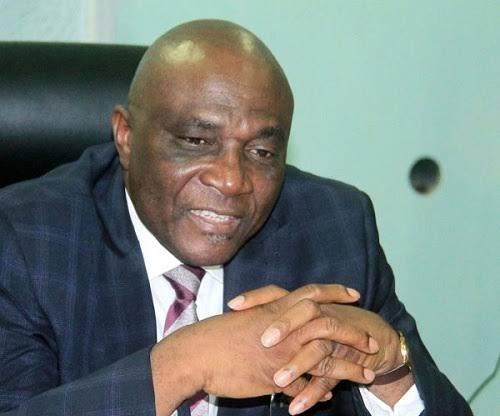Article summary
- Nigerian weddings have become a capital-intensive endeavor due to the adoption of the three-tier wedding system, which includes traditional, registry, and white/religious weddings.
- The number of guests invited to Nigerian weddings is also a significant driver of the cost.
- Traditional weddings require significant investments in transportation, accommodation, feeding guests, and procuring items from the wedding list, etc.
Growing up in the mid-80s, my dad would occasionally regal my brothers and me with tales of how my maternal uncle walked out on the day of his traditional wedding because of what he considered excessive and unreasonable demands from the bride’s family.
According to the story, my dad and other family members had escorted my uncle across the Forcados River to Futorogbene, a town inside the creeks in present-day Bayelsa State. They had loaded the boat they chartered from Bomadi to his Fiancée’s hometown with practically everything on the marriage list they were given. Festivities commenced and items were requested and presented, money was paid in place of some, and on it went until they asked for a specific material that was for the grandmother of the bride.
My dad, who was the lead person on my uncle’s side, informed them the said item was not on the wedding list. Meanwhile, their intermediary replied that the said item was necessary and had to be made available. At that point, my uncle had had enough and told his younger brother to pack all the items they had brought and head for the jetty.
All entreaties from my dad fell on deaf ears. My uncle said he was no longer interested. After all, it was he that everyone had accompanied to the wedding. It took the intervention of the bride (who had been unaware of the happenings) and her father to get him to return to the venue of the wedding.
Every time I recall the preceding event, I always find myself smiling. Based on the current trends, demands, and costs of weddings, my uncle might have probably chosen to remain single all his life.
Nigeria’s three-tier wedding system
The wedding industry in Nigeria has grown from its humble beginnings to become a billion-naira industry involving venues, catering, music, event management, designers, social media handlers, Make-up Artists, specialized drinks services, ushering/hostesses, etc.
- There are now teams of well-trained and resourceful people who plan, organize, and execute every aspect of the perfect Nigerian wedding.
But why and how have weddings evolved in Nigeria to become such a capital-intensive endeavour?
- One general reason why weddings are now so expensive in Nigeria is the 3-tier wedding system we have adopted, which has become the norm amongst all ethnic groups and religions.
- This system means we have what we call the traditional wedding, the registry wedding, and a white/ religious wedding. Each of these is cost-intensive.
- Another key driver of cost for Nigerian weddings is the number of guests invited for the weddings. This is perhaps the major driver of a Nigerian wedding cost outlay.
- A typical Nigerian wedding will expect a crowd of between 500-1,000 guests. The more guests you have the higher your wedding expense.
Traditional Weddings
The accepted convention is that the traditional wedding rites are held at the ancestral hometowns of the brides or any location chosen by their parents.

- If the couple and their friends live in different towns from the venue of the traditional wedding rites, the logistics outlay can become a huge component of the overall budget for the wedding.
- The costs of transporting, accommodating, and feeding guests (before and after the wedding) must be considered. Buses are often made available to transport guests to and from their base to the wedding destination, even as hotel rooms are booked for them.
- Most cultures in Nigeria have what is termed a wedding list which contains all the requirements for a traditional wedding.
- This list is sent ahead to the groom’s family for them to procure and present the required items during the ceremony.
Nigeria is a culturally diverse nation, which means what is the norm in one part may not be the same in another. But you can be sure that the key items are not cheap.
- Most traditional weddings occur in the family house of the bride so more often than not, the couple does not get to rent a hall.
- However, they will incur the cost of assorted food and drinks, chairs and canopies, location decorations, gifts for attendees, security (especially if it is outside Lagos or Abuja), transportation, and other logistics costs.
- The bride and groom will also invest significantly in traditional attire not forgetting the cost of make-up which has now become a must for most women on their wedding day.
- You also have to spend on entertainment such as getting a good DJ and MC who will ensure guests dance and party late into the night.
- Very wealthy celebrants go as far as inviting popular Nigerian artists to give their traditional wedding another level of greatness.
The cost of court and white weddings
The registry (or court) wedding is most times a small affair for most families, except for those that do not intend to have a white/ religious wedding.
- Take-away refreshments are usually the norm at most of these simple registry weddings. So, there is often no need to hire a hall.
- The only fixed costs are institutional costs such as fees payable to the government for a marriage license.
- For more financially wary celebrants the court and white weddings are done on the same day.
For most Nigerians, the white/religious wedding is the actual wedding and for this, no expense is spared.
- The location for white weddings is determined by many factors such as the cost of the event place price, availability of the chosen date, the social status of the couple, the number of guests, etc.
- In Lagos, event venues in Ikeja and other parts of the Mainland that can accommodate 300 – 500 guests cost upwards of N1.5 million– N2.5 million on average.
- On Lagos Island, the prices for the same halls can range from N3 million – N10 million for a single-day event. The prices are also determined by how beautiful the interior decorations are and whether they have enough parking spaces.
The associated cost of pre-wedding photoshoots
In this age of social media, high-quality pictures and videos are as important as the food at the wedding reception.
- For this reason, the services of Make-up Artists (MUA), photographers, and videographers are needed to help create lasting memories starting with the pre-wedding photoshoot which could cost between N300,000 to N500, 000.
- There are stories of celebrity makeup artists charging as high as N1 million for makeup on a wedding day.
The cost of the wedding attire
The different attires worn by the bride and groom for the different wedding days also contribute to the cost.
- The bride and groom usually wear different attires for the engagement/introduction ceremony, the traditional wedding, the court wedding, and the white/religious wedding.
- Each of these attires is unique and expensive and couples are expected to spare no expense. After all, you only get married once for the first time.
- Nigerians love to dress up in colourful flamboyant outfits for their wedding day. So, a lot of effort is put into the choice of outfits for each phase of the wedding sequence.
- Some Nigerian fashion designers specialise in making exquisite and expensive dresses. This takes away the need for brides to go for imported dresses. Nonetheless, some of these locally-made wedding dresses are equally just as expensive.
The cost of decorating the event halls
Though some of the event halls are typically already decorated, professional interior decorators are contracted to create the desired ambience for the day.
- Sparing no expense, specialist interior decorators are hired to create an impression that would endure in the minds of guests.
- The chairs and tables, table layout, diffusers, floral arrangement, and other accessories can run into anything from N3 million – N10 million depending on the size of the hall and intended aesthetic.
The cost of food
As a people, we love our food. Little wonder food is an important aspect of every Nigerian wedding party. It is considered rude and uncouth for you to invite people even for a small gathering and not provide them with refreshments.
- Jollof rice is a Nigerian staple that must be on the menu along with an assortment of local dishes depending on the location and ethnic group of the wedding hosts.
- The basic cost for a plate of jollof rice served with fish and beef or chicken and moimoi is between N2,500 – N4,000 per plate.
- In most cases, the Caterer factors in the cost of the serving dishes, chargers, and other things used to improve the overall presentation of the food.
- Sometimes, the Caterer could be told to make a special dish for some distinguished guests who are served in a separate room away from the crowd.
The cost of drinks
What is a Nigerian wedding without drinks, lots and lots of it? Consumption of alcohol is one way Nigerians make merry.
- Therefore, weddings are always flooded with choice wines, liquor, beer, non-alcoholic beverages, and cocktails made at the venue. If you have ever heard about the drink, you can be sure it will be served at a Nigerian wedding and in very copious amounts for that matter.
- Most international brands have found the Nigerian market very attractive and have spent tons of dollars on advertising and placements through which they have gotten a foothold on the Nigerian market and by extension the wedding scene.
The exponential growth of the Nigerian wedding industry in the last decade is visible in the number of fashion designers, Make-up Artists, Photographers, Videographers, Event Managers, Decorators, caterers, and social media handlers that have built their careers on weddings.
Whatever your thoughts are on the cost of a modern Nigerian wedding, the truth remains that all the expenses surely culminate in a jolly good time for the couples, family, and friends. Weddings also contribute significantly to the Nigerian economy.
Source: Nairametrics

















